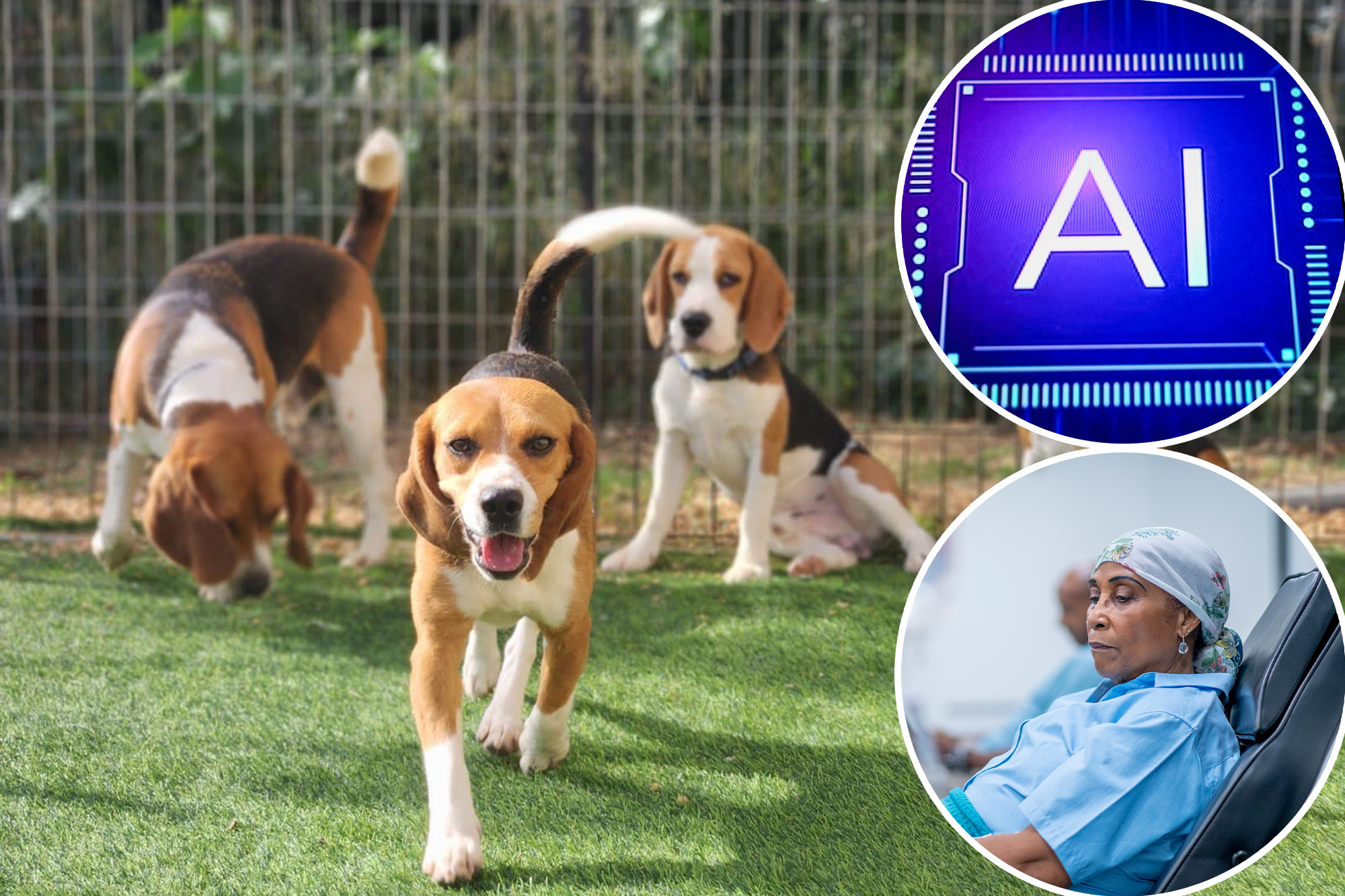Howl-Ellujah!
You probably have heard dogs can train to snatch cancer.
Now the Israeli Startup Spotitearly is taking advantage of this remarkable capacity, along with innovative technology, to launch the next secret medicine weapon.
The Biotech Company is developing a revolutionary cancer screening test that is part of PUP, part of the AI.
It then shows how it works: Ask for a test to your door, breathe in a high -tech mask that resembles a N95 for three minutes and send the sample to Spotitearly laboratory.
There, a team of dogs trained professionally will give it a good sniff, and if there is any cancer present, they will know.
“Our dogs are natural workers and they like to be mentally stimulated by their smell. Training them to detect smells was not a challenge; it is in their nature,” the post shlomi Madar told Spotitearly’s CEO.
“With about 250-3 billion receivers, it is estimated that the sense of a dog’s smell will be between 10,000 and 100,000 times more sensitive than humans. This is what makes them very effective for smell-based tasks, such as those of police forces or to detect diseases in humans.”
According to Madar, dogs make their diagnosis by detecting cancer smell signatures in a patient’s volatile organic compounds (COV): biological blood information on our lungs traveling in the air we are exhaling.
No matter how incredible, such as these PUP Super-Syiffers, real magic occurs when canine intelligence complies with artificial intelligence.
“As detection dogs are placing samples in the laboratory, we use our platform and the owner, lucid, to trace and analyze their physiological and behavioral signals, collecting thousands of data points per second,” Madar explained.
“Lucid will generate a positive laboratory result if a cancer sign is identified in a sample. This fusion of advanced technology with the extraordinary olella capabilities of the canines allows each sample to be analyzed in a second fraction, which makes the solution highly scalable.”
The goal is to locate cancers before, when they are easier and cheaper to treat.
“Often, cancer diagnoses are too late,” said Madar. “Our goal is to reduce the diagnoses of cancer in the late phase and potentially fatal. The data is clear: when we detect cancer before, we significantly improve survival rates and the results.”
The test, which is in late phase development, is expected to reach the market by 2026 with an estimated $ 250 price.
This is by type of cancer, with discounted discounts for multiple cancer projections.
“We plan to work with health insurers to cover the test to reduce the financial burden of patients,” he said. “Once commercially available, this will be a high priority for us.”
In a recent clinical study, Spotitearly cancer screening method was 94%accuracy.
If it works, you can save you a trip to the doctor and an unpleasant procedure.
“Many people avoid screenings of routine cancer because they can be uncomfortable and invasive,” said Madar.
“By simplifying the process to a self -administered screening test where users only breathe in a mask, [this] Levels that barrier and encourage more proactive evidence. “”
Research has found that only 14% of cancers in the United States are diagnosed with a traditional screening test.
Although Spotitearly does not seek to replace them, Madar said he wants to “improve the diagnosis of cancer and treatment ecosystem, changing it from the sick care to true health care”.
Now – Back to dogs.
The puppies work a few hours a day in teams and are rewarded with delight and love.
When they are out of the clock, they get outdoor play time, belly friction and a lot of human attention.
And when do they retire? They are adopted in loving houses, often for the people who work with them.
“Our dogs are not laboratory animals; they are really a part of the team intensely,” Madar said.
And, although cancer is the priority at the moment, especially because it is mysteriously the rise of the youngest, Madar believes that technology could one day help shake other diseases, such as Parkinson’s and serious infections.
“We aim to make early diagnosis the rule, thus increasing the possibilities of survival on a scale,” he said.
#Exclusive #home #test #detect #cancer #adorable #puppies #laboratory
Image Source : nypost.com

